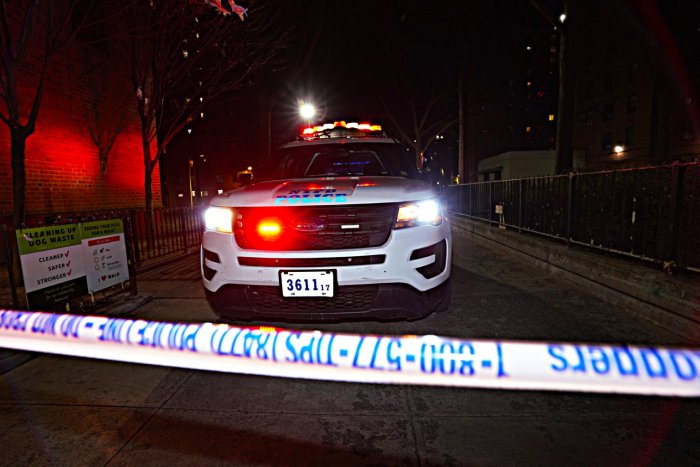By The TimesLedger
Francis J. Wolfe, a leading expert on drug enforcement and a retired deputy inspector with the New York Police Department who headed the Narcotics Bureau during the mid- to late 1960s, died May 13 at North Shore University Hospital, in Manhasset, L.I. He was 85.
The cause was heart failure after a brief illness.
During the 1960s, he was instrumental in convincing New York City officials to bring the then-controversial drug methadone to the United States from England to treat heroin addicts. The synthetic drug satisfied an addict's physical craving without the high associated with heroin, allowing addicts to begin rehabilitation and reenter the workplace in the hope they would be able to wean themselves from drugs entirely.
The fledgling methadone program eventually developed into an accepted form of rehabilitation for heroin addicts, and today remains the standard form of treatment. Methadone maintenance has a 20 percent rate of success in rehabilitating addicts, higher than any other treatment.
Mr. Wolfe was born in Brooklyn in 1917, the second of 11 children. He joined the New York City Police Department in 1941, before World War II broke out. His choice of joining the Police Department was a pragmatic one; at the end of the Great Depression, the Department was the first to hire after he took a civil service exam.
He rose through the ranks, starting with his appointment as a sergeant in 1954. During the next decade, he was appointed lieutenant, captain and deputy inspector in rapid succession.
He joined the Narcotics Bureau in 1958 and was picked to lead it in 1965. With more than 400 detectives at his command, it was the largest narcotics enforcement force in the world. During his tenure at Narcotics, Mr. Wolfe oversaw some of the Police Department's highest profile busts, including the so-called “French Connection” case, fictionalized in a novel of the same name by author Robin Moore, and eventually made into a popular motion picture starring Gene Hackman.
He attended the Federal Bureau of Narcotics Training School in Washington and Baruch College in New York. He taught law at the Police Academy, in addition to lecturing on narcotics and narcotics enforcement at The John Jay School of Criminology. Mr. Wolfe also was a respected lecturer on drug enforcement throughout the United States.
He retired from the Police Department in 1968, and served as a narcotics investigator for the Nassau County District Attorney's Office in Mineola, L.I., for two years. In 1970, he joined the newly formed Insurance Crime Prevention Institute (ICPI), heading up the New York office. ICPI was created by insurance companies to investigate white-collar crime involving insurance fraud. He soon became the assistant director of ICPI nationwide, as the organization grew and became a potent force in conducting private investigations of insurance fraud that were handed over to local enforcement agencies and the FBI for arrests.
He retired from ICPI in 1978.
He was a resident of Douglas Manor for the past 38 years, and involved as a volunteer in organizations there including the Udalls Cove Preservation Commission and the Douglas Manor Association.
He is survived by his wife, Asta; and two sons, Kevin of Douglas Manor, an architect in private practice in New York, and Robert, a retired teacher of Shoreham, L.I., and two grandchildren.


































